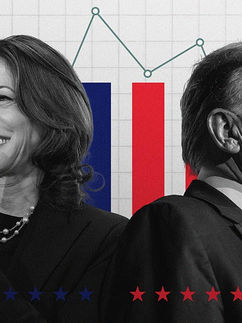Cashing Out: What a digital economy could look like and what the phasing out of cash means
Joe Hicketts

In the modern economy, data is everything. Your car tracks and saves your route to your work, your social media feed tracks your likes and dislikes and serves you tailored media, and your search engine keeps a digital record of who you are and what you are interested in.
The economy we live in today feeds on data. Since the 2010s, the idea of paying for a service with your personal data has become the default for many business models. That same transition to a data-based economy is now playing out through the medium we all interact with in the economy: money. Being a relatively young former finance worker, I should be at the forefront of this growing financial revolution. However, while I do appreciate the positives that the decline of cash could bring, the drawbacks of this phaseout are somewhat understated.
At the core of this issue is the idea that cash is an old dying medium, with young people simply preferring to use faster and more convenient forms of payment. Cash’s role as the default payment medium is falling rapidly: in the US, only 16% of total payments were made via cash in 2023 down from 31% in 2016. Many young people don’t carry cash around at all, opting for the convenience of a beep and a boop.
The second benefit often cited by banks is the idea that the provision of digital finance will help bring in the unbanked population into the formal finance sector, increasing overall growth. As an example, a Southeast Asian farmer using digital finance could perhaps obtain a small loan from a bank in exchange for providing the bank insight into their day to day transactions, with the loan itself being used by the farmer to expand operations and increase overall output. Among less developed economies, the ability of banks to provide credit to individuals who would not previously have the required assets or technological capability under a more traditional banking sector is something that could definitely increase growth.
Despite the advantages that a cashless society could bring, it would have different quirks and ramifications, like most things in the global economy. These would largely depend on where you are in the world and the compromises that each government makes. Despite the advantages that a cashless society could bring, it would have different quirks and ramifications depending on the compromises that each government makes in its conception. This would in turn positively or potentially negatively impact consumer experience.
Broadly speaking, going cashless requires a decision on two variables: the level of state control/oversight, and the inclusion of the traditional banking system versus the new technological approach. The best contrast of this can be seen in a comparison between the UK and China, two countries at the forefront of this digital revolution albeit at different ends of the scale.
In the UK, digital payments are largely routed through traditional banks which plug into the VISA and Mastercard infrastructure with little government oversight on your day-to-day purchases. This contrasts with China, where people often use the payment function of newer all-in-one apps such as WeChat Pay or Alipay, with the CCP having close enough ties to the businesses to allow the tracking of transactions of “undesirable” people. However, it should be noted that in recent years the CCP has been taking steps to up the level of regulation for these payment businesses to curb the power held by the main payment provider of millions of Chinese citizens.
A third example of a digital economy can be seen in India with their Unified Payments Interface (UPI) system. UPI allows for free and easy payments via a smartphone without needing to enter bank details or sensitive information. It essentially sees the idea of digital payments as a public service intended to bring people into the economy and to increase business activity. The system has been wildly successful, seeing its share of digital transactions increasing from 17% of digital translations in 2019 to 52% in 2022. The system is also open so users are not locked into a sole company and can move freely to competitors.
Though the transition to a cashless society is accelerating, there are still many competing visions globally of what a digital economy could be, despite it only having two main ingredients – a statement any baker would surely empathise with. The flavour largely depends on what the government seeks to gain out of the new system, whether it be increased convenience for consumers, increased government oversight or increased economic activity.
Despite this, there are certain advantages of a cashless society that are broadly universal. Bar increased convenience, they usually fall into the category of increased control, with each stakeholder up the chain having potentially more control than the last: bank account holders themselves are less likely to experience petty theft; the banks now have visibility of more payments, allowing for more selective lending as well as higher fees; and governments, depending on the type of digital economy, have the ability to lend or distribute welfare payments through an existing banking system, or even monitor the day to day payments of its citizens.
Handing cash also is expensive, costing an average of 0.5% of GDP per year through the printing process as well as the daily journeys that trucks must make to and from the shops that use it. However, though the advantages of cash are perhaps more subtle than that of digital payments, these advantages are no less valid.
If the advantages that going cashless brings can be summarised as ‘control’, cash can be perhaps summarised as ‘independence’: Users are not faced with upfront fees as they are when using a credit card, nor must they pay with their data as they do when using apps such as Google Pay. There are also the obvious benefits of being offline, being useful for when natural disasters strike as well as being arguably more beneficial for low income households; cash, being tangible, means it is easier for families to budget. Studies also show that people making card payments routinely make larger purchases than people using cash: Forbes Advisor states that 52% of people are likely to make an impulse buying decision via a card compared to 24% using cash.
The holding of cash also hedges consumers against negative interest rates which would be possible for governments to implement if the phaseout of cash were completed. The phaseout of cash also could be seen as a bit of an unfair fight in the public sphere given that, unlike in the digital economy, no one stands to profit from the continual use of cash.
Cash in its traditional form is essentially a public good; its role as a financial medium is funded by the government and as such no one profits from its use. This contrasts with a cashless society given that traditional banks, financial technology companies and even governments could seek to benefit through: the absorption of data, increased fees, and increased control that the transition brings.
This does not necessarily mean that these costs are unjustified, however. What it does mean is that, in the same way that the rise of social media in the 2010s has brought a significant amount of power to a select few companies that now have the ability to somewhat shape public perceptions as well as having vast swathes of data, there is now the same movement to another largely private business sector. This sector will also have the capabilities to extract some of the most important information that you own: your purchasing information. This could take the form of consent for the bank to view and potentially cancel transactions in exchange for lower fees – a financial black box, if you will – all the way up to allowing governments to track purchases of so-called undesirables.
There is no doubt that we are experiencing a somewhat inevitable transition to a digital economy. The rise of smartphones and the internet show that the offer of convenience is a subtle but strong pull to most. However, given the potential for this power to be wielded maliciously, as well as the explosion in data generating capability that social media companies have created, governments should be more cognisant of the benefits that cash can bring. Despite these payment systems often being free, as we all know with money you can never get something without giving something up in return.
Joe Hicketts is a former finance worker from London now residing in Japan who trained as an Engineer with a First Class Mechanical Engineering degree from the University of Birmingham, but with a passion for Geopolitics and Economics. While working in Finance he gave presentations on topics such as: Overview of the Chinese Property Market, Causes and Long Term Impacts of Global Labour Shortages and Long term Future of Cryptocurrencies and CBDCs. He is seeking a role in an International Relations/Economics related field. Feel free to contact him via Linkedin.

















Comments